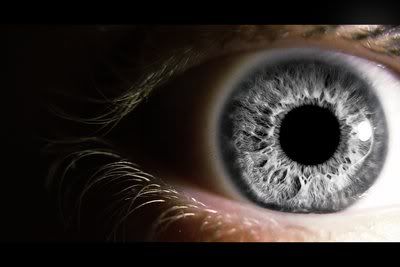
the journey by ciril
cum-patire
The issue of choice has popped up here and there in my posts over the past months, and maybe have snubbed choice as being only a negative thing. I like choice; really who doesn't? I like choosing between the strawberry alberto shampoo, or the cherry almond kids shampoo, from the hundreds of other, lesser, hair products. I like choosing the Nintendo DS over PSP. I like being able to choose to eat pizza tonight and eat donairs tomorrow... I like choosing which guy I like, or the romantic line of thinking of choosing to love who I like, choosing to marry because of love. I like being able to choose becoming a better person. I like thinking that I have chosen to follow God. Of course thinking that I choose whatever I have, whatever I am, becomes shaky ground when life gets tough. When I choose all of this the person I have to blame the most for when things go wrong is me. We could try to blame someone else, but if we think about the fact that we wanted to choose, than the only person to blame for that choice is us right? Sure we didn't intend for our choices to lead us to certain places or for those unexpected surprises, but no one can plan for those, you can only plan for what you know of. Only choose from what you know of.
If you think I'm saying we shouldn't have choice so we don't have to blame ourselves. Relax. That's not what I'm saying. I'm just thinking maybe we've over-glorified choice. You know you really like something so you treat it like it's the shiznit, like there's nothing that could ever go wrong with it. Like that guy or girl you think is really amazing. And even though they are probably pretty great, you really don't pay attention to things about them that might drive you nuts; you just go on and on about all the things that are fantastic about them. I wonder if we've done that with choice, just thought about all the great things about it so we've ignored the down-sides, or even ignored the fact that sometimes we really don't have a choice (or maybe not as much choice as we think we do). Do we really get to choose the life that we have? Or do we get to choose to do the best (or the worst) with what we are handed?
Maybe that's why people so many debate continuously about fate and freedom, we have all this choice available, but we don't really know where our choices will take us. Whether we choose for ourselves or someone else chooses for us, whether we intended something to happen or if it just befell us, life is still a mystery. We plot and plan our lives away, fill our minds with all the great choices we have, and then what is left to live of it?
Maybe that's partially why God has worked so hard on my heart to let go of always having some big dream, a scheme, a set idea of where I'm headed, because life is going to come anyway. He's got a plan, and it's really good, so i should just wait and walk and be amazed. There's nothing wrong with dreams, I'm still a dreamer. There's nothing wrong with thinking about the future, but there's comes a point when one has to live with where they are and what they have. I don't have to spend all my time dreaming up a life, I already have one, I can spend my dreaming skills on other things (such as blog posts, ha).
cum-patire is a latin word I stumbled upon my readings last semester, it means to suffer with. The author was writing of how a group makes a choice together, or will help one of their own make a choice. Maybe we've got enough problems of our own to think about, and perhaps if we think about suffering with someone as primarily, or as only, as emotional we'll only wear ourselves out. But perhaps suffering isn't just emotion, perhaps we could lend our brains, lend our hands. Many of us do, many of choose us to. There's nothing wrong with choice, but maybe we need to let go of the liberty of choosing which kind of cola we prefer to lend our life to those who didn't choose what befell them. Then again maybe it's just me, maybe I just think about myself too much, and I do.
So, I may not choose to suffer with you, I may not choose to be your friend, I may not want to do certain things that I know I should, but I will none the less. If you don't like it, tough, I'm going to love you anyhow. You may say I've chosen to do what is good despite my emotions, you may say that I am only nit-picking on terminology, but it's a thought. We really like our choice, and we don't like to give that up.
